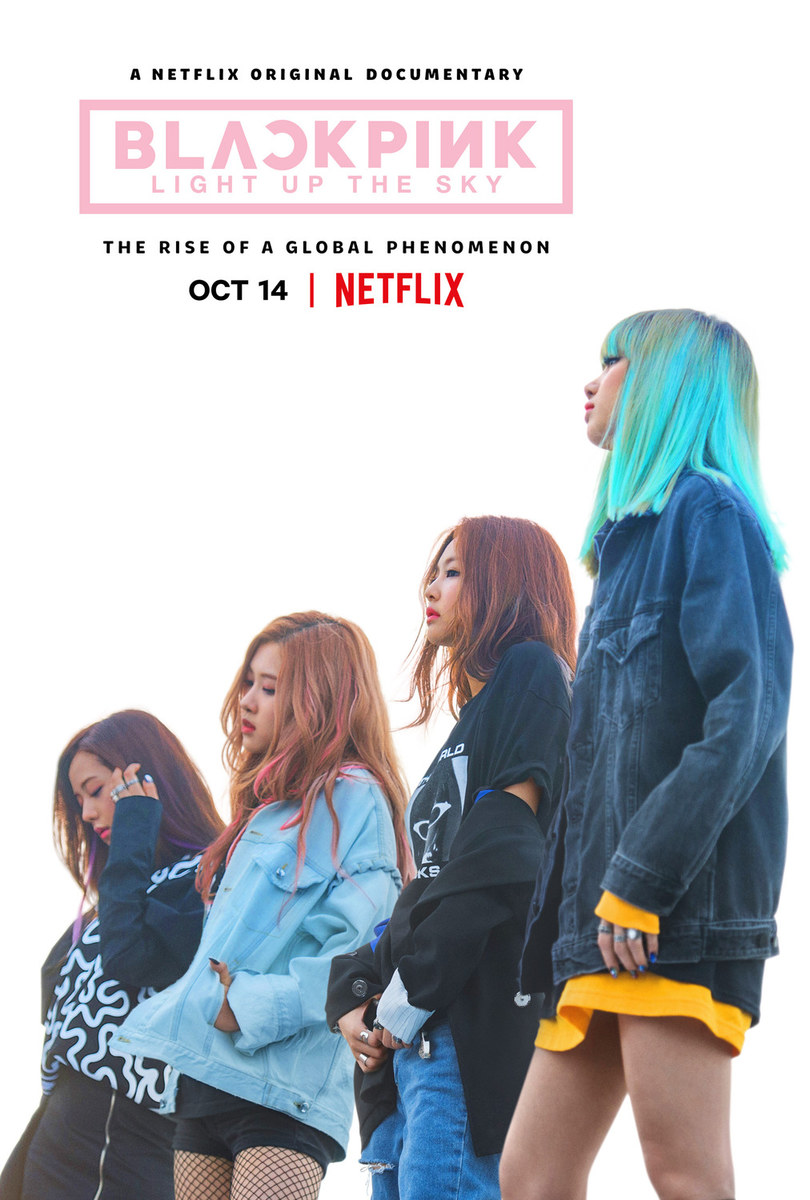CHENNAI: It has taken only a couple of years for Blackpink to become one of the biggest girl bands in the world, with members Jennie, Jisoo, Rose, and Lisa continuing to smash new records.
They were the first K-pop girl group to play at the Coachella music festival and to reach 1 billion YouTube views. They broke three Guinness World Records with the single “Kill This Love,” and are the most subscribed female group on YouTube.
But how did they manage to do all of this?
Caroline Suh’s Netflix documentary, “Blackpink: Light Up the Sky,” presents in just under 80 minutes a visually rich story of each of the group’s four women in their 20s.

Blackpink came into existence in 2016 only to touch the skies in just three years, becoming an unbelievable sensation. Supplied
The work, now on Netflix, happily does not turn out to be an exercise in color, gloss, and high fashion, but draws us into the women’s personal lives and rigorous schedules, which were stressful and involved sacrifice, comparable to the kind of tough regime that Olympic athletes undergo in their race toward gold.
Blackpink came into existence in 2016 only to touch the skies in just three years, becoming an unbelievable sensation. That happened at Coachella in the US, where the spectators, thousands of them, went delirious watching the women sing and dance.
Suh splendidly balances the team’s professional life by presenting hit songs such as “Whistle,” “Kill This Love,” and “I’m Ready for Love,” with their personal joys and even griefs. Her attempt to humanize the quartet is gloriously lovely.
The director introduces each group member in a very leisurely way, in places far away from the noise and din of the madly cheering crowds.
Rose is Korean, grew up in Australia, but was born in New Zealand, while Jisoo was born and raised in Korea. Lisa comes from Thailand and was a rapper and lead dancer before joining YG Entertainment. “I have been dancing since I was in kindergarten,” she said. Jennie was always “super shy.” She was born in Korea but moved to New Zealand when she was 10 years old.
Behind the glitz and high living, first-class hotels, and business-class travel (or was it first), the young women missed their homes and families, especially during their long tours, sometimes stretching months on end.
“I would talk to my mother every day,” one of them said. One can sense wistfulness, the creeping loneliness and quiet that follow every concert. Then there were those missed experiences. “A lot of people make memories as a high-school student, but I never had that,” Jennie said.

Lalisa Manoban in Blackpink: Light Up the Sky. Supplied
The quartet’s training began in their early teens, and they could see their families once in two weeks. Suh incorporates audition videos of the girls before they were picked by YG, which looked out for that quality that goes hand-in-hand with stardom.
Suh’s documentary is wonderfully intimate, and between the concerts, she incorporates the fears and fancies of the women. They are nervous at their first meeting with journalists and bloggers, and the natural bonding among the four gives them a kind of warmth and strength to face the challenges of an extremely competitive profession.
But will they be together once the Blackpink phenomena ends? “The thing is, you can never tell how long it will last,” Rose said.












